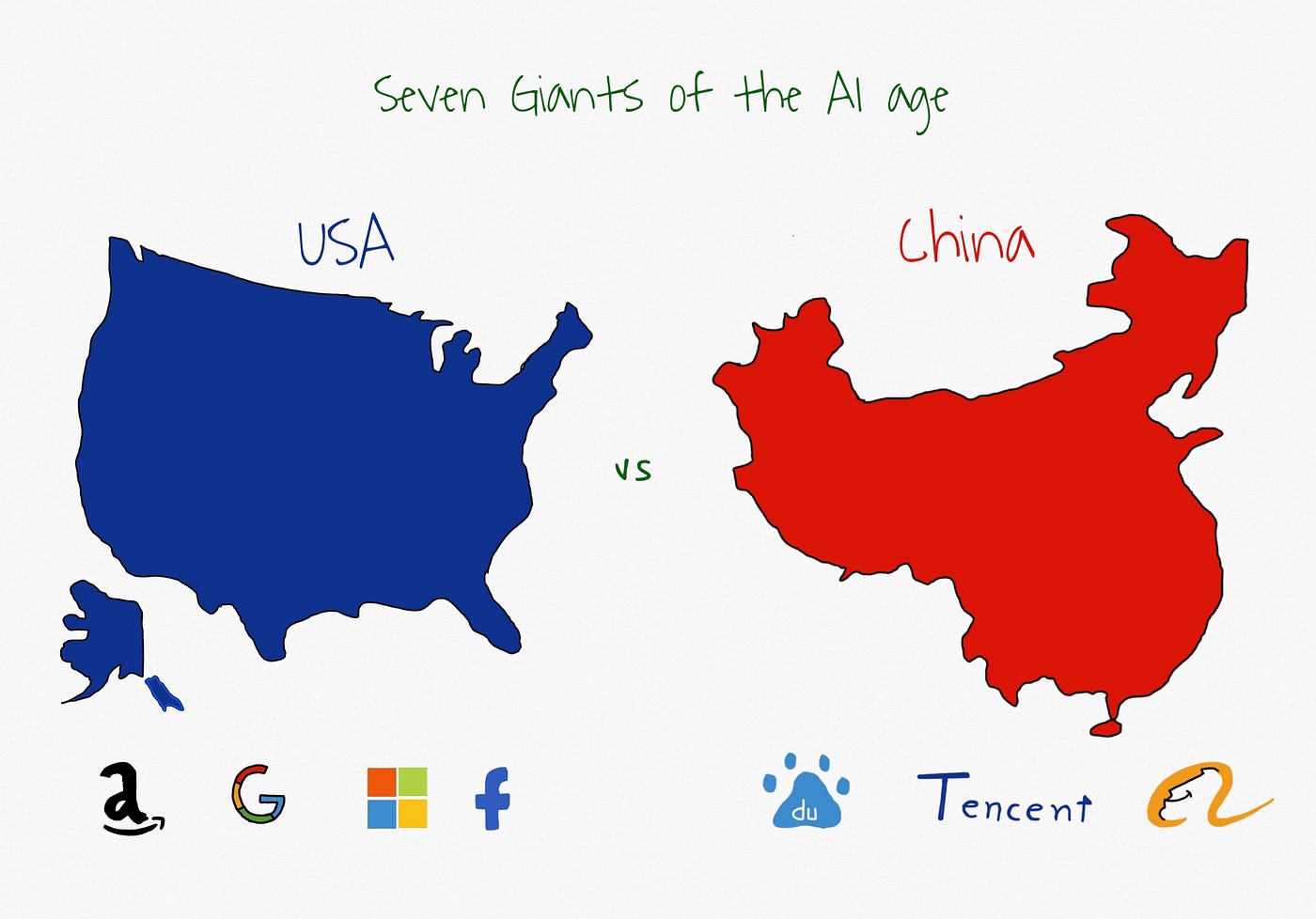A.I, short for artificial intelligence, has been in constant improvement and development, going as far to be called "revolutionary." Except, it has only one flaw. It lacks in facial and vocal recognition for people who happen to be non-white. Misidentification of people because of A.I claiming there was a warrant or 87% similarity to a wanted person, no identification of non-white users, and A.I misinterpretation of words due to an accent.
There are two notably superpowers leading the A.I development on a global scale. China and the United States. The top 10 A.I superpowers can be viewed here. Taiwanese computer scientist, businessman, and writer Kai-Fu Lee is a leading expert and speaker on how these two superpowers have been competing for A.I dominance on a hemispherical scale, and possibly even a global scale. Two global superpowers have advanced past other developed countries in the race of A.I development. But what's wrong with this picture?
These are countries with both subconscious and conscious bias.
Take China in 2022. It's a "surveillance capitalistic" nation. A surveillance nation, as defined by Shoshona Zuboff, is the "unilateral claiming of private human experience as free raw material for translation into behavioral data." There is a constant surveillance presence, like street cameras routed to a police-viewing center, throughout the country. There is a much heavier concentration of surveillance in the Xinjiang region which is home a minority of China called the Uyghurs. Surveillance, predominantly supplied by Huawei, here is something more... authoritarian and invasive. See Chinese surveillance below:
Now, let's take a view into the United States and her companies' versions of A.I: Google Home, Amazon's Alexa, Apple's face and finger recognition on their iPhones and MacBooks respectively. How well developed is A.I in a country as diverse as the United States? It's obviously well-developed enough for mass production, but it's not made very accurate to the American consumer.
The 2020 U.S Census states that Whites have dipped from 63.7% (2010) to 57.8% in racial or ethnic prevalence. Recorded Latino/Hispanic numbers are 18.7%. The Black American population is at 12.1%. This means that facial and vocal A.I systems must be updated to better recognize this growing number of diversity. For instance, a number of Latino/Hispanic adults retain their parents accents, which cause issues with a system like Amazon's Alexa recognizing what is being told. Sometimes, people have to change their accent in order for A.I to recognize a voice.
Other times, facial recognition systems used for a larger company, organization, or school does not individualize recognize a face with no white features, like skin tone or facial structure. Features are generalized and the technology can be fooled.
The world is a big place with a lot of people. A lot of people in a big place have a lot of time, resources, and intelligence. More information may lead to an overwhelming amount. More information may lead to a bias in coding or development.
Ask yourself: is your technology bias?
/cdn.vox-cdn.com/uploads/chorus_image/image/69632702/cwelch_191031_3763_0001.0.jpg)



No comments:
Post a Comment